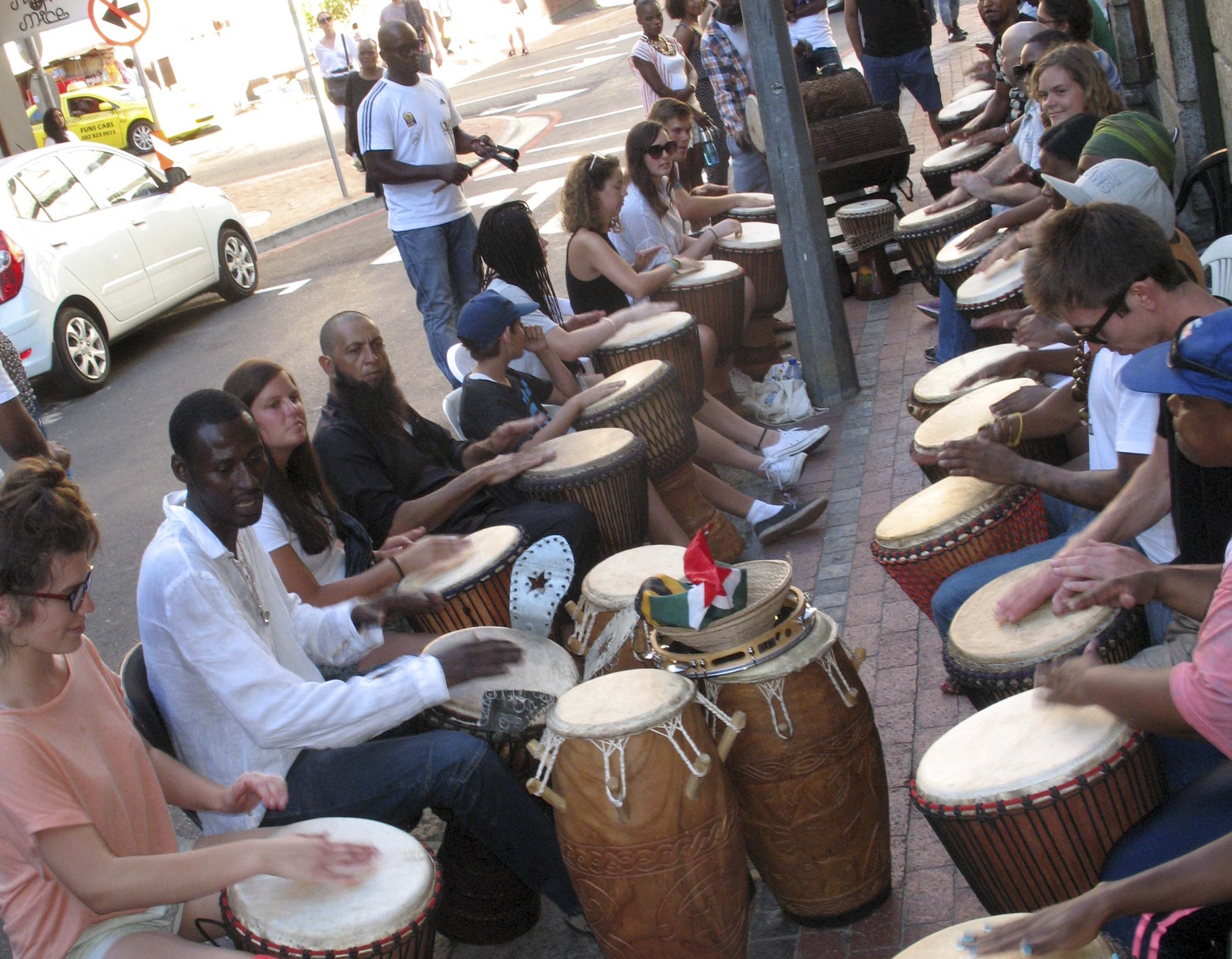
Solomon Ajimah (second from left), runs drumming workshops in Cape Town city centre on Saturdays. Photo: Mandla Mnyakama
29 April 2016
The sound of Solomon Manan Ajimah’s drums echoes through Cape Town city centre on a Saturday afternoon.
Ghanaian-born Ajimah, 41, hosts free “Drum for All” sessions outside his curio shop on the corner of Long Street and Longmarket Street.
Drumming, he says, can uplift the mood, heal the body and even help violent people to find peace.
Ajimah says he learned from his elders in Ghana who used to gather around a bonfire and drum as they told stories to the children.
He also learned to design djembe drums from a tree trunk and a bushbuck skin.
Today, he says, drumming in Ghana is a national obsession with an annual competition where the winner takes home an antelope.
Ajimah moved to Cape Town in 2005 and left his permanent job as a mechanic in 2006 to start a drumming project. He bought 10 djembe drums and started work at the Green Point Flea Market.
He has worked in America, Canada, England, Italy, Jamaica, Lesotho and Norway. In Cape Town, he has run workshops in Kommetjie to bring together people who were on bad terms with each with other and has helped to get young children in Mitchells Plain exchange toy guns for a drum.
“One of my highlights was when a Canadian organisation took me to Lesotho for a two-week workshop where I got to use drumming to inspire HIV/Aids orphans, blind and disabled people.”
“I love drumming so much. I regard it as a gift from my ancestors.
“It is in my blood and spirit. It can uplift one’s spirit or motivate people when they feel hurt, or heal the sick. It can also chase evil spirits away and help people connect with their inner soul.”
Ajimah says his Saturday sessions are free because he wants people to experience the benefits of drumming. “It also gets them to understand how rich African culture is”
“My dream now is to engage some homeless people in this kind of exercise to help them feel the therapy this can bring to one’s body. Maybe it can play a role to change their lives.”
The weekly workshops cater for groups of about 20 participants including tourists.
His only problems, he says, are comments from members of the public who complain about the noise.
“Confrontations with police and traffic cops about noise also became troublesome experiences for me and I felt greatly relieved when they stopped recently, because I am doing this for the people,” says Ajimah.